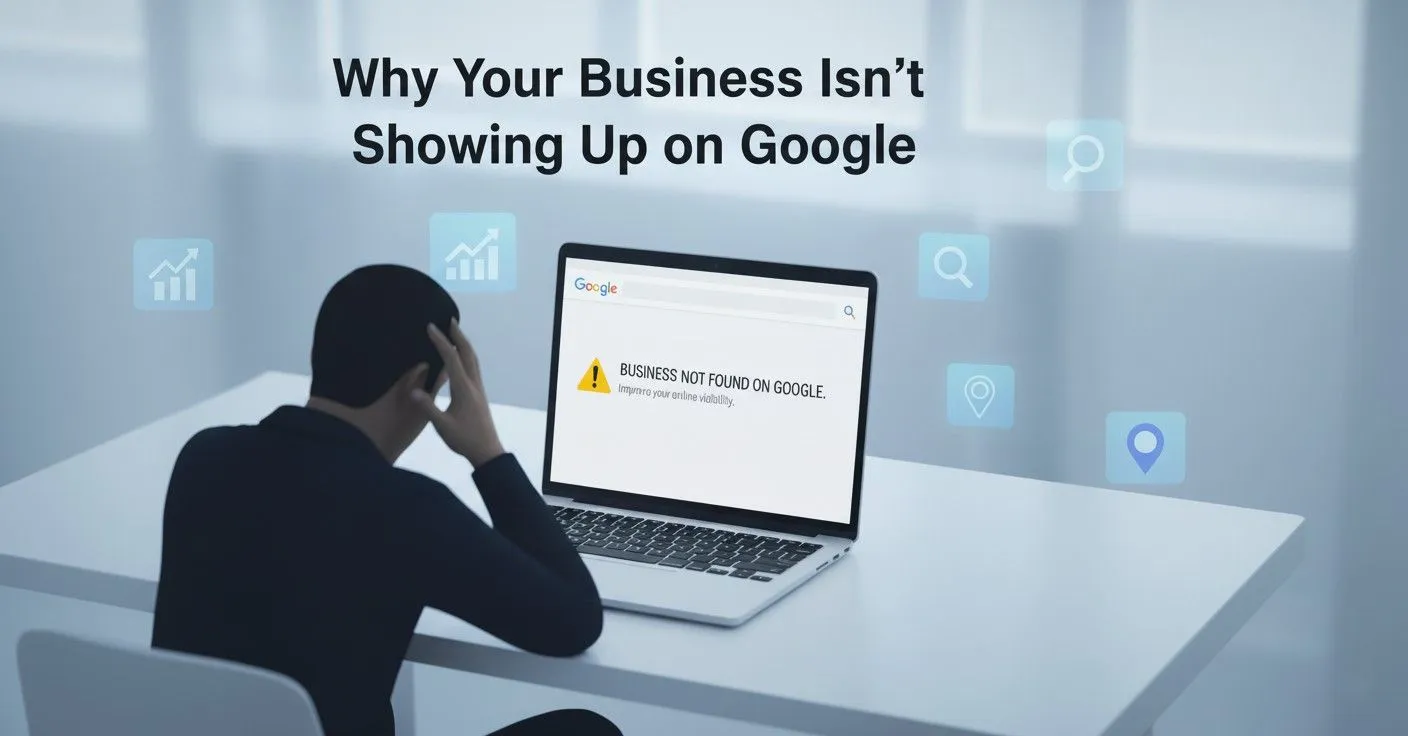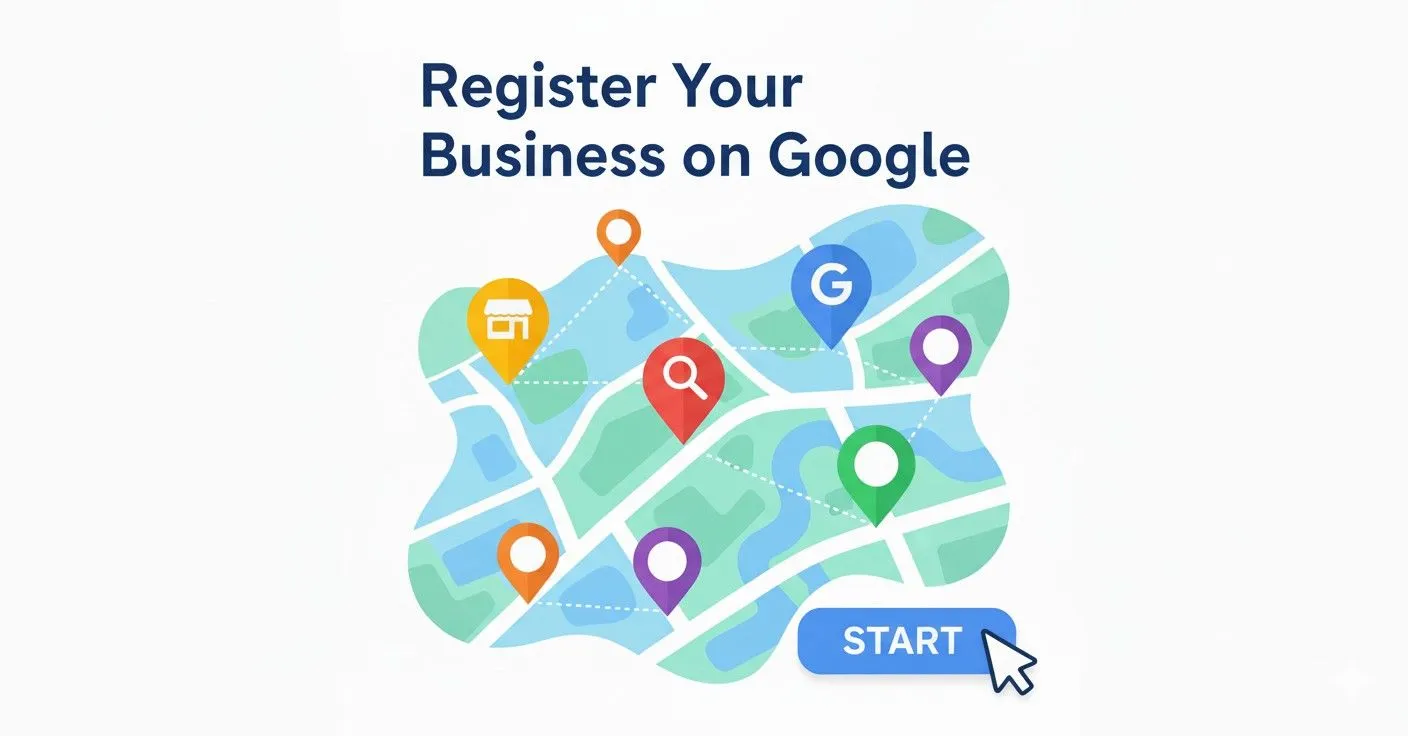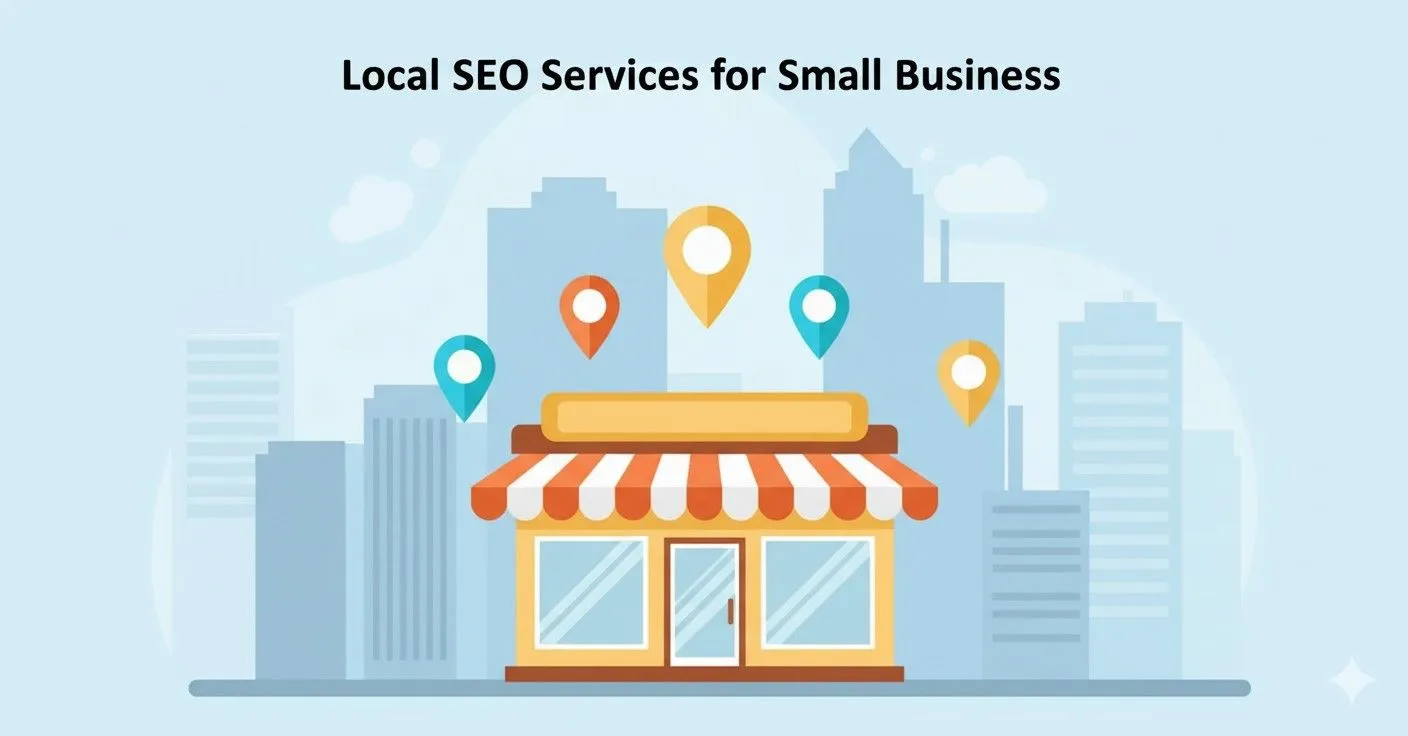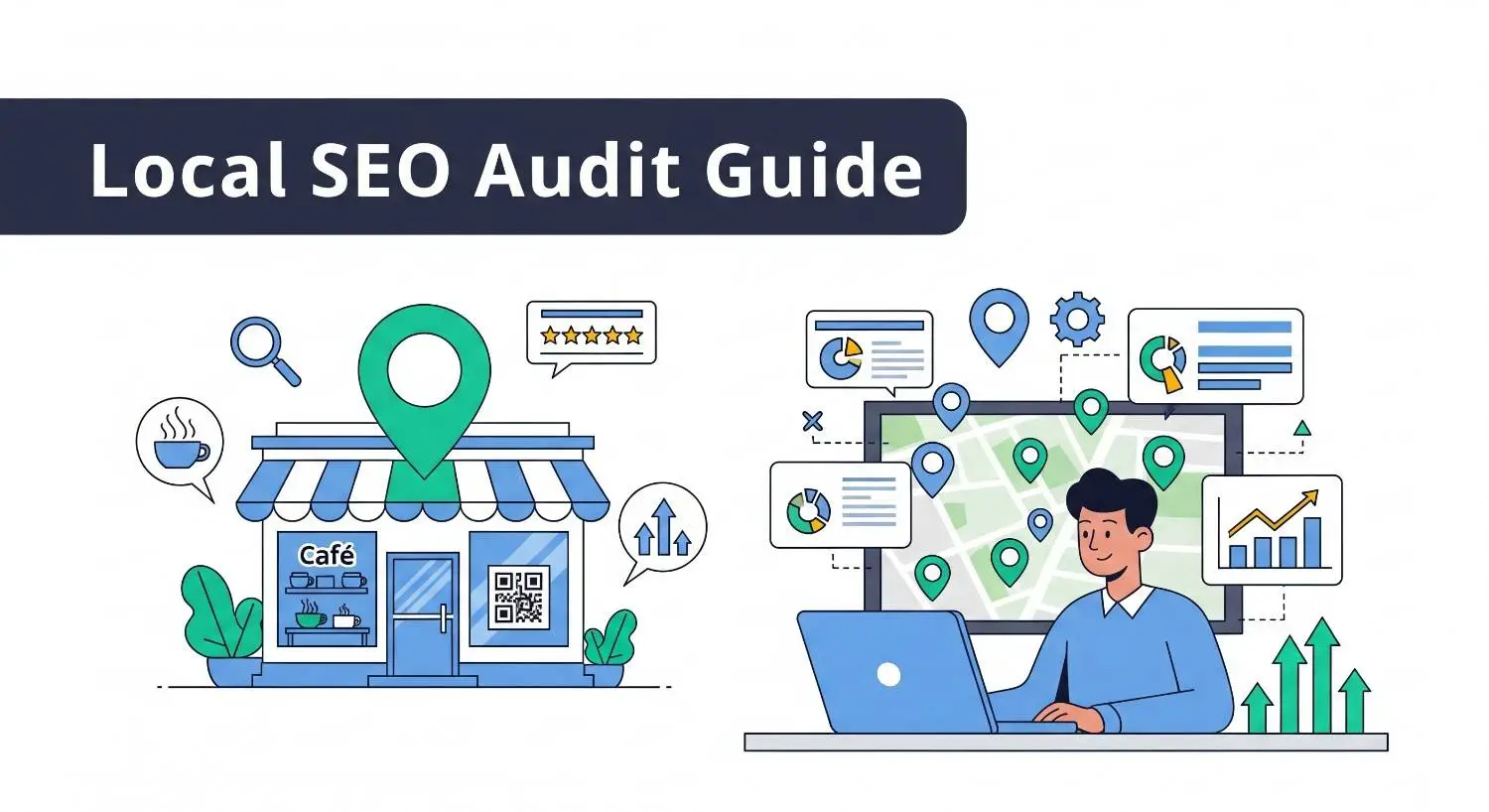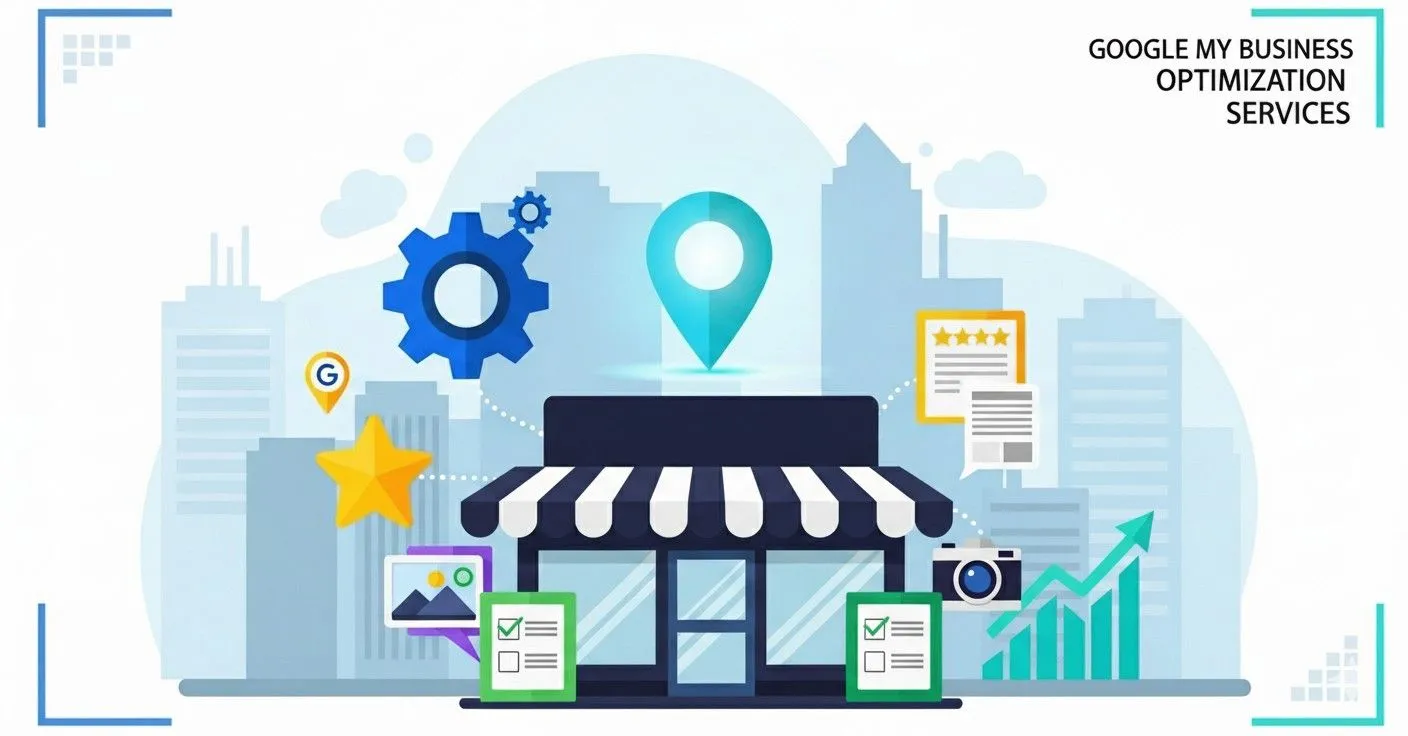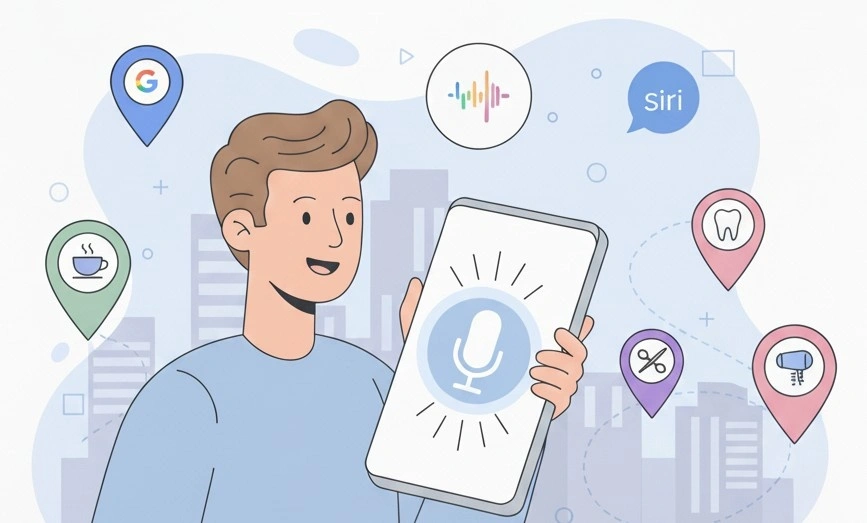
Voice Search Optimization for Local SEO
Have you ever asked your phone something like, “Where’s the best coffee shop near me?” Voice search is no longer futuristic—it’s how millions of people find local businesses instantly.
For business owners, this is a huge opportunity. Most voice searches are location-based, meaning people want immediate answers nearby. If your business isn’t optimized for voice search, you could be losing valuable customers to competitors.
In this article, we’ll explore why voice search matters for local SEO and exactly how to optimize your business to show up in those “near me” searches.
What Is Voice Search Optimization?
Voice search optimization is about making your business easy to find when people use voice commands to search online.
Unlike typed searches, voice searches are usually:
- Longer phrases (people speak naturally)
- Question-based (Who, What, Where, How)
- Location-focused (near me, nearby, open now)
Examples:
- Typed: “best coffee shop near me”
- Voice: “Hey Google, where’s the best pizza place in New York that’s open now?”
- Typed: “dentist near me in Los Angeles”
- Voice: “Siri, find a plumber in Los Angeles who can come today.”
Voice search optimization ensures your business is the answer Google, Siri, or Alexa gives when someone asks.
Why Voice Search Matters for Local Businesses
- Over 50% of people use voice search daily.
- Most voice searches are local, often including “near me” or city-specific phrases.
- Voice searches often lead to immediate action: phone calls, website visits, or store visits.
If your business is not optimized, customers are finding your competitors instead.
How Voice Search Queries Differ from Text Searches
Text searches: short and keyword-focused
Voice searches: longer, natural, and conversational
Example 1:
- Typed: “best coffee shop Miami”
- Voice: “Alexa, find a restaurant near me that’s open now.”
Example 2:
- Typed: “electrician Chicago”
- Voice: “Hey Google, which electrician closest to me in Chicago and available today?”
Notice how voice queries mimic real conversation. Your content needs to reflect this style to be discovered.
Steps to Optimize Your Local SEO for Voice Search
Here’s a practical roadmap to get started:
1. Claim and Optimize Your Google Business Profile
Your Google Business Profile (GBP) is the foundation of local SEO. For voice searches, Google often pulls answers directly from it.
- Keep your business name, address, and phone number (NAP) consistent
- List your business hours, services, and categories
- Add high-quality photos and videos
- Post updates and offers regularly
- Collect and respond to reviews promptly
2. Use Conversational Keywords
Voice searches are natural. Instead of short keywords like “local SEO services,” include long-tail, question-based phrases such as:
- "Who provides reliable home cleaning services in Seattle?"
- “How can I improve my Google Maps ranking in Boston?”
- “Where can I find the best dental clinic near me in Dallas?”
Include these phrases in blogs, service pages, and FAQs.
3. Create an FAQ Section
Many voice searches are questions. FAQs help you answer them directly.
Examples:
- “How do I get my business to show up in near me searches in New York?”
- “What is the best way to optimize for voice search in Los Angeles?”
- “Why is Google Business Profile important for local SEO in Chicago?”
Use FAQ schema markup to increase the chances your content is picked as the featured snippet.
4. Optimize Your Website for Mobile and Speed
Most voice searches happen on mobile devices. If your site is slow or not mobile-friendly, you’ll lose customers.
- Test your site with Google PageSpeed Insights
- Compress images, enable caching, and use responsive design
- Make phone numbers clickable for instant calls
5. Include “Near Me” Keywords
Google recognizes intent. People saying “near me” want local answers.
- Naturally use “near me” phrases in your content
- Example: “Looking for expert local SEO services near you in Miami? Here’s how we can help.”
6. Build Local Citations and Backlinks
Consistency is key. Submit your business to directories and local listings:
- General directories like Yelp, Yellow Pages, and Hotfrog
- Industry-specific directories relevant to your services
Accurate citations build trust with Google and improve local rankings.
7. Encourage Customer Reviews
Reviews are essential for both voice search and local SEO.
- Ask satisfied customers for reviews on Google, Yelp, or niche platforms
- Respond professionally to all reviews
- Highlight testimonials on your website to build credibility
8. Write Content in a Conversational Tone
Use everyday language that mirrors how your customers speak.
Instead of: “We provide SEO services.”
Say: “If you’re wondering how to rank higher on Google Maps and get found in near me searches in Los Angeles, we can help.”
This style makes your content more voice-search friendly.
FAQs About Voice Search Optimization
Q: Is voice search relevant for small businesses?
Absolutely. Many local customers search by voice to find restaurants, salons, and service providers nearby.
Q: How can I track voice search queries?
Check Google Analytics and Search Console for longer, question-based keywords—they often come from voice search.
Q: Does voice search optimization work only for Google?
No. Siri, Alexa, and other assistants also answer local queries. But Google dominates search, so optimizing your GBP is essential.
The Future of Local SEO and Voice Search
Voice search isn’t a fad—it’s the new normal. With smart speakers, AI assistants, and mobile devices everywhere, consumers prefer asking instead of typing.
By optimizing your Google Business Profile, creating natural, conversational content, and collecting reviews, you increase your chances of being the top answer.
Many businesses haven’t adapted yet. By acting now, you can capture customers searching by voice before your competitors do.
Final Thoughts
Voice search optimization is essential for local businesses. People now ask their devices for nearby services instead of typing.
A well-optimized business profile, local citations, reviews, and conversational content are your keys to being discovered by your next customer. Don’t wait—your future customers are already asking for you out loud.
Get optimized today and start turning local voice searches into real customers.
